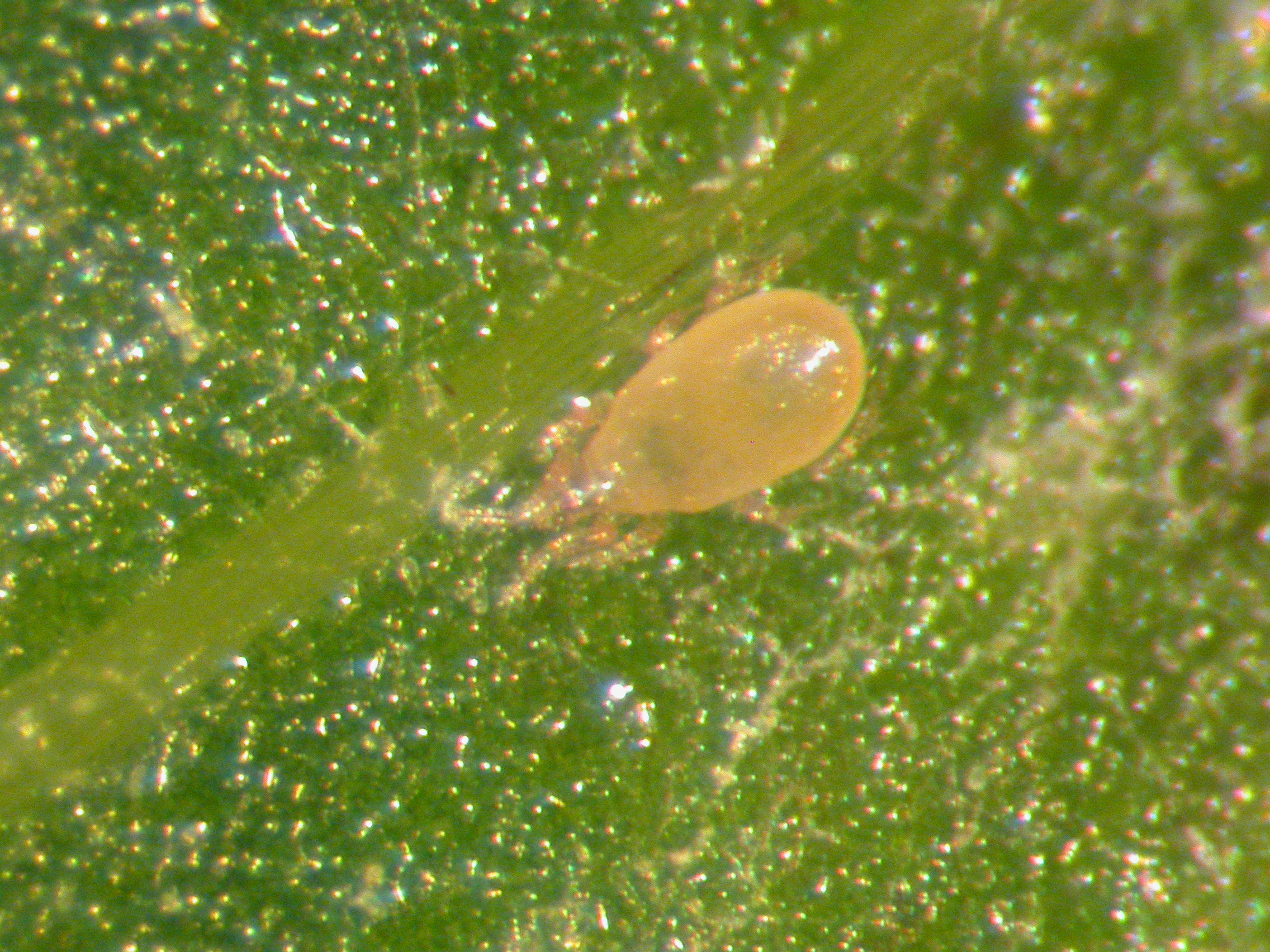Funding technological advancements in horticulture

We have announced the winners of our Prototyping and Demonstrator Fund, awarding £500,000 to four projects that will test the commercialisation of new technological advancements in horticulture.
Robotics, automation and AI for advanced pest and disease control
MiDeVa: Mites Demonstration and Validation
Partners: Saga Robotics Ltd (lead) and NIAB
Grant award: £113,000
Increasing automation of strawberry production is seen as an important development for the industry to address labour shortages and remain competitive. This project, led by Saga Robotics and NIAB, will trial an innovative robotic approach to pest and disease control in commercial strawberry farms across Kent.
The project will build upon Saga Robotics’ state-of-the-art robotic platform, Thorvald 3, which already has the capability of administering UVC treatment to control powdery mildew in crops, equipping the robot to simultaneously dispense predatory mites will add further value to this system. This could offer a more holistic and sustainable approach to automated crop management.
It will be the first-ever deployment of Saga Robotics' fully modular mite dispersal system during the strawberry growing season. Mites are beneficial insects used to biologically control thrip pests.
NIAB’s research team will evaluate how the combination of UVC treatment and mite dispersal affects the life cycle and population dynamics of the beneficial insects, an essential factor in ensuring the success of this biological control method. Testing this robotics system in commercial farms will allow for iterative design improvements, ensuring the system’s performance is optimised for commercial use.
VineAI: Artificial Intelligence for Fungal Disease Management
Partners: Deep Planet Ltd (Lead), NIAB, English Wines PLC, Gusbourne Estate Ltd, Nyetimber Ltd, and Rathfinny Wine Estate Ltd.
Grant award: £144,500
Grapevines in the UK can be susceptible to diseases, including downy mildew, powdery mildew and botrytis. This can significantly reduce the yields that growers can harvest from their crop and be economically damaging.
Deep Planet aims to detect and predict the presence of these diseases in UK vineyards, by leveraging satellite imagery and artificial intelligence through the use of machine learning.
This is a collaborative project between leading UK wine producers, the Wine Innovation Centre at NIAB and Deep Planet, AI and data specialists.
The aim is to introduce cost-efficient and scalable precision agriculture solutions to wine grape farmers and businesses in the UK, to accurately detect and predict key fungal diseases (botrytis, powdery and downy mildew). It aims to offer a reliable solution that can replace inefficient disease detection methods of monitoring with human scouts or drones.
Developing healthy food ingredients from agricultural by-products
FutureDry
Partners: Drytec Spray Drying Ltd (Lead) and Cambridge Glycoscience Ltd
Grant award: £149,500
Traditional agricultural systems generate substantial side streams, which contain sought-after nutrients like dietary fibre and protein, but are generally underused or discarded.
Healthy and sustainable ingredients can be derived from the by-products or waste of cereal crops and Spent Brewery Yeast, the waste created by brewing beer. However, selecting the best processes and techniques to extract and preserve these by-products in food manufacturing can be challenging.
Spray-drying can be more efficient and less energy-intensive than fresh, chilled or frozen food preservation methods. This project will review how effective spray drying is for creating nutritious and sustainable food ingredients from by-products of Kent’s food and farming sectors, namely spent brewery yeast and cereal crop by-products. This project will ultimately deliver industrial prototypes of novel food ingredients which could be used by food manufacturers as an alternative, non-animal protein source and for sugar reduction in food products.
If successful, this project could help farmers and brewers secure additional income streams, by finding new value and purpose from their by-products. As well as developing a nutritious and sustainable food ingredient for food manufacturing.
RePizza: Boosting agricultural output through the development of healthier and more sustainable staple foods
Partners: Repizza Ltd (lead) and Cambridge Glycoscience Ltd .
Grant award: £149,000
Demand for more nutritious and sustainable food products has increased dramatically with growing concern for global issues related to health, climate change, and food security. However, most consumers are not prepared to compromise on taste and sensory experiences for the foods they love. Maintaining the quality and properties of staple foods, whilst also delivering healthier and more sustainable alternatives is therefore a key challenge.
Motivated by these issues, this project will bring to market an innovative new category of high-fibre, lower-calorie and more sustainable pizza bases for food service customers.
Using the by-products of crops, Cambridge Glycoscience has developed a suite of healthier and more sustainable (lower emissions, lower land use) proprietary food ingredients.
Their most recent innovation, Grain & Stalk (G&S) flour, uses both the wheat grain, which is typically used, as well as the stalk, which is normally wasted or under-used. Using this technology, wheat farms can potentially double their food output, without using more land and resources.
The company has successfully optimised a grade of G&S flour for use in pasta, they are now looking to expand the flours use into other staple food products.
RePizza manufacture high-quality artisan pizza doughs and bases for the hospitality industry. Using RePizza's expertise and facilities for industrial-scale pizza manufacture and CamGlyco's expertise in new ingredient formulation, this project will develop and commercialise a range of healthier and more sustainable pizza bases using under-utilised crop side streams in Kent.
